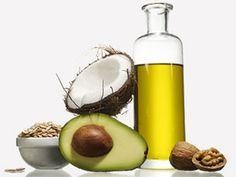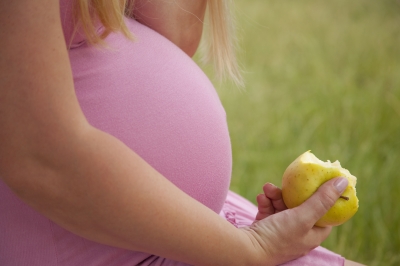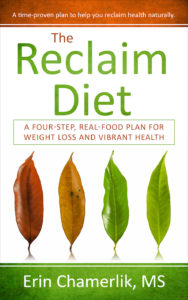
Natural Help for Postpartum Depression – Supplements and Food for Pregnancy
What is postpartum depression & anxiety?
The American Psychological Association says,
It’s common for women to experience the “baby blues” — feeling stressed, sad, anxious, lonely, tired or weepy — following their baby’s birth. But some women, up to 1 in 7, experience a much more serious mood disorder — postpartum depression. Unlike the baby blues, PPD doesn’t go away on its own. It can appear days or even months after delivering a baby; it can last for many weeks or months if left untreated.
“The baby blues affect up to 75 percent of mothers in the first 10 days following birth, but the symptoms—usually mood swings and bouts of crying—are mild and don’t last long.” Chris Kresser
Scroll down to read:
What are the symptoms of postpartum depression?
QUESTION
I usually get some postpartum depression after I have a baby and some seasonal depression on top of it.
Are there any supplements I can add to my diet now, while I am pregnant, that will help support me and my baby so that I can try to avoid this typical pattern?
ANSWER
Vitamin D3 and K2
Vitamin D3 with K2 is a very important supplement for everyone.
Your prenatal vitamin probably does not have enough!
“It is unlikely your prenatal vitamin provides enough vitamin D. A recent study found women taking 4,000 IU of vitamin D daily had the greatest benefits in preventing preterm labor/births and infections.
The study confirmed vitamin D at this level is not only safe for you, but for your baby, and the researchers from this study now recommend this daily dosage of vitamin D for all pregnant women. The average prenatal vitamin only contains 400 IU of vitamin D, so additional supplementation should be taken daily.” – American Pregnancy Association.
I recommend this one: D3 5,000 + K
Omega 3s
Omega 3’s are important during pregnancy and after!
Consume 3 servings of wild caught cold water fish weekly and take an Omega 3 supplement like Carslon Cod Liver Oil (2 tsp daily).
Magnesium
Add magnesium glycinate (Mg Plus Guard about 400mg at bedtime. We all need this mineral, but the deficiency is one big reason for pre-eclampsia.
A quality Prenatal Vitamin
GOOD BRANDS are important, because prenatal vitamins and cheap fish oil can be of no value.
 Then there is the whole diet thing.
Then there is the whole diet thing.
I believe our brains require lots of healthy fat.
Enjoy eating organic butter, raw coconut oil, and extra virgin olive oil at every meal!
Eat natural olives, avocados, pastured eggs, and the best meat you can afford.
Eat quality animal protein, grassfed, free range, pasture raised, and wild caught!
Fix your gut issues now!
 Most of your serotonin receptors are in the gut, not the brain – so taking a high quality probiotic daily with goes a long way to keeping your happy brain chemicals in balance.
Most of your serotonin receptors are in the gut, not the brain – so taking a high quality probiotic daily with goes a long way to keeping your happy brain chemicals in balance.
I like Life 9 and consuming raw fermented vegetables.
Read my post, Feeding the Unborn.
Other Helpful Information
Get a full thyroid panel (not just a TSH)
during pregnancy and after the birth of the baby. If your doctor will not do a full panel, you can get it done at DirectLabs.com
Hormone Balance
After birth, there is a dramatic drop in Progesterone. Consider supporting with Progessence Plus.
Stress
There is no doubt that bringing home a newborn will be a joyful, yet stressful event.
Natural help for the stressed brain.
Here is the follow up email sent from the mama who asked the question above!
Erin, I wanted to thank you for the advice on the supplements. I’ve never felt this great after birth.
To top it off I lost a lot of blood during labor and the nurse said I would be very fatigued for a couple months after birth.
I feel fantastic and I know it’s from the advice you gave me. Can’t thank you enough!
The following information is from the National Institute of Mental Health
What are the symptoms of postpartum depression?
Some of the more common symptoms a woman may experience include:
-
- Feeling sad, hopeless, empty, or overwhelmed
-
- Crying more often than usual or for no apparent reason
-
- Worrying or feeling overly anxious
-
- Feeling moody, irritable, or restless
-
- Oversleeping, or being unable to sleep even when her baby is asleep
-
- Having trouble concentrating, remembering details, and making decisions
-
- Experiencing anger or rage
-
- Losing interest in activities that are usually enjoyable
-
- Suffering from physical aches and pains, including frequent headaches, stomach problems, and muscle pain
-
- Eating too little or too much
-
- Withdrawing from or avoiding friends and family
-
- Having trouble bonding or forming an emotional attachment with her baby
-
- Persistently doubting her ability to care for her baby
- Thinking about harming herself or her baby.
How can a woman tell if she has postpartum depression?
Only a health care provider can diagnose a woman with postpartum depression. Because symptoms of this condition are broad and may vary between women, a health care provider can help a woman figure out whether the symptoms she is feeling are due to postpartum depression or something else. A woman who experiences any of these symptoms should see a health care provider right away.
How is postpartum depression different from the “baby blues”?
The “baby blues” is a term used to describe the feelings of worry, unhappiness, and fatigue that many women experience after having a baby. Babies require a lot of care, so it’s normal for mothers to be worried about, or tired from, providing that care. Baby blues, which affects up to 80 percent of mothers, includes feelings that are somewhat mild, last a week or two, and go away on their own.
With postpartum depression, feelings of sadness and anxiety can be extreme and might interfere with a woman’s ability to care for herself or her family. Because of the severity of the symptoms, postpartum depression usually requires treatment. The condition, which occurs in nearly 15 percent of births, may begin shortly before or any time after childbirth, but commonly begins between a week and a month after delivery.
Recommended
-
Dandelion for Liver Support and Health BenefitsJuly 20th, 2024
-
Modified Citrus PectinJuly 11th, 2024
-
Bentonite Clay Mask for Face and ArmpitsJuly 8th, 2024
-
Two Supplements for Erectile DysfunctionJune 30th, 2024










